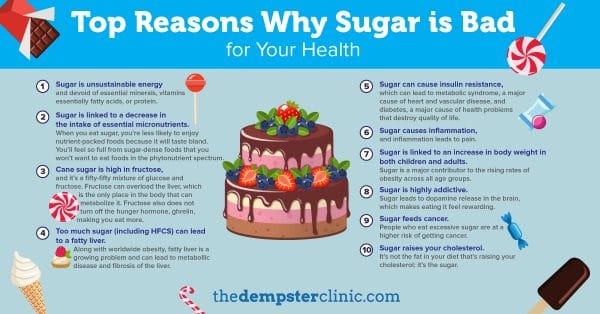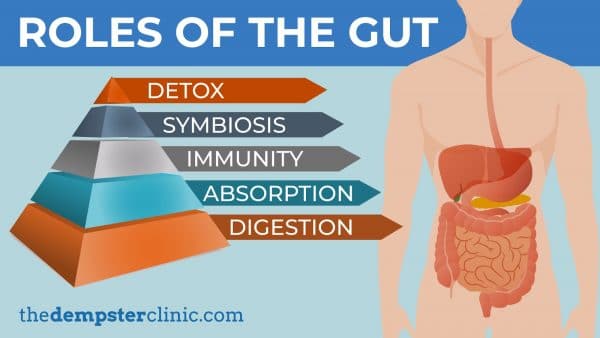If you’re living on this planet, your body is inevitably impacted by inflammation in one way or another. Our bodies constantly work to maintain a delicate balance amidst an ongoing biochemical juggling act. While acute inflammation, like the swelling after a sprained ankle, is a protective response, chronic inflammation can be far more harmful. Increasingly, research ties chronic inflammation to a host of diseases that are widespread in developed countries, including heart disease, diabetes, autoimmune conditions, and even cancer.
The sources of inflammation are everywhere—embedded in our environment and everyday habits. What we eat, drink, breathe, think, and feel directly affects our biochemistry. Furthermore, the trillions of microorganisms in our gut—the microbiome—play a pivotal role in either healing or harming us, depending on our consistent lifestyle choices. The field of Epigenetics is revolutionizing our understanding of how our environment influences genetic expression. Researchers like Dr. Bruce Lipton, author of The Biology of Belief, have demonstrated that stress can directly alter gene activity, significantly impacting our health. At the core of wellness is managing inflammation, and what we put in, on, and around our bodies has a profound influence on our well-being. Here are my Top 5 Ways to Reduce Inflammation in Your Body:
1. Cut Back on Sugar
It’s no coincidence that the Standard American Diet is abbreviated as “SAD.” A typical Western diet is loaded with refined carbohydrates, which are a primary driver of inflammation. Numerous studies attribute the rising prevalence of chronic diseases to dietary habits. Fast food outlets, sugary snacks, and processed meals are the norm, and they fuel the body’s inflammatory pathways. Eating refined sugars triggers a cascade of cytokines, interleukins, and other inflammatory markers, setting the stage for chronic illness. If you need a visual, consuming high-sugar foods is akin to throwing gasoline on a fire. To reduce inflammation, focus on a diet of whole, non-processed foods. If something comes in a package, read the label carefully—especially if you’re managing food sensitivities, in which case food sensitivity testing in Toronto can help identify specific triggers.

2. Fats That Heal, Fats That Harm
“Wait, Doc, did you mean to say all fat is bad?” If this sounds familiar, allow me to clarify—my title isn’t a typo. In fact, consuming certain types of fat is essential for disease prevention and optimal health. Surprisingly, eating fat is even necessary for maintaining a healthy metabolism. Yes, you read that right—we actually need to eat fat to lose fat!
For decades, we’ve been led to believe that fat is the culprit behind numerous health issues and that low-fat diets are the way to go. However, recent advancements in nutritional science tell a different story. Not all fats are created equal, and some are crucial for our well-being. The healthiest fats typically come from nuts, seeds, algae, and clean fish sources. Omega-3 and Omega-9 fatty acids are essential for cellular health, hormone production, and brain function. These fats act as the building blocks for our body’s vital systems.
While Omega-6 fats are also important, they are already abundant in the Standard American Diet (SAD). An excess of Omega-6, with insufficient Omega-3, creates a pro-inflammatory state in the body, contributing to chronic disease. On the other hand, certain fats should be avoided—oils like canola, vegetable, and hydrogenated oils can cause oxidative stress and trigger degenerative processes, increasing the risk of long-term health issues.
One of the best oils for cooking is non-hydrogenated coconut oil. Unlike olive oil, which can degrade at high temperatures, coconut oil remains stable when heated, making it an excellent choice for cooking. So go ahead, add some healthy fats to your next meal—your body will thank you!
For a deeper understanding of how dietary fats might be impacting your health, consider food sensitivity testing in Toronto or consulting with a functional medicine doctor in Toronto who can provide personalized guidance on your optimal fat intake.
3. Heal Your Gut
We’ve all heard the phrase, “You are what you eat.” But I believe it’s more accurate to say, you are what you absorb. Most nutrient absorption occurs in the small intestine, which is crucial for maintaining good health. Unfortunately, many people experience chronic digestive discomfort—gas, bloating, heartburn, constipation, or diarrhea—and assume these symptoms are normal. They are not. These signs point to inflammation in the gastrointestinal system, often caused by food sensitivities, microbial imbalances, or nutrient deficiencies. When left unchecked, this can lead to intestinal permeability, commonly known as Leaky Gut Syndrome, which paves the way for a variety of health problems.
The good news is that you can address these issues by following the 4 R Approach:
Reduce: Remove foods that irritate the gut lining. This may involve eliminating common triggers such as gluten, dairy, or processed foods. If you’re unsure what’s causing your symptoms, food sensitivity testing in Toronto can help pinpoint problem foods.
Remove: Target unhealthy microbes in your gut with an individualized plan. This might include natural antimicrobials or dietary changes to rebalance your microbiome. Advanced microbiome testing in Toronto can provide insights into your gut health.
Reinoculate: Restore your gut flora by introducing healthy bacteria through therapeutic doses of probiotics. A thriving microbiome is key to reducing inflammation and supporting digestion.
Repair: Nourish and heal the gut lining with specific nutrients like L-glutamine, Omega-3 fatty acids, and herbal remedies that support enterocyte regeneration. This step is vital for restoring proper absorption and reducing inflammation.

4. Eliminate Toxic Metals from Your Body
Did you know that most adults over the age of 40 are carrying toxic metals in their bodies without even knowing it? These unwanted metals—such as mercury, lead, aluminum, cadmium, and arsenic—accumulate over time from various environmental sources. Common culprits include paint fumes, gasoline, flame retardants, vaccines, fish, and even certain dental procedures. While these exposures are often unavoidable, the real concern lies in what remains in your tissues. Toxic metals significantly increase the risk of inflammation-driven diseases, including cancer, heart disease, Alzheimer’s, and autoimmune disorders.
The Mayo Clinic highlights that the gold standard for identifying toxic metals is a provocative urine challenge, a test designed to measure the presence of heavy metals. While it might feel unsettling to discover elevated levels, the good news is that toxic metals can be safely eliminated from the body. One of the most effective methods is chelation therapy, which binds to heavy metals and removes them from the body. It’s essential to undergo this treatment under the guidance of a certified functional medicine doctor in Toronto who specializes in functional and environmental medicine.
To assess your heavy metal burden, consider heavy metal testing in Toronto at The Dempster Clinic. Identifying and removing these toxins can be a crucial step in reducing inflammation and improving your long-term health.
5. Boost Your Antioxidants
Your body’s biochemistry is like a continuous dance, balancing free radicals and antioxidants to maintain health. This delicate equilibrium affects how you feel, think, and age every single day. Although free radicals often get a bad reputation, they’re necessary for certain bodily functions. The key is balance—too many free radicals lead to oxidative stress, which damages cells. Think of it like rust forming on a car or an apple browning after it’s been cut. This oxidative stress accelerates disease progression and cellular aging, contributing to conditions like heart disease, diabetes, and cancer.
The solution? Antioxidants, which neutralize free radicals and help maintain cellular health. To slow down oxidative damage, aim to include several servings of dark-colored fruits and vegetables in your daily diet. Blueberries, pomegranates, and other antioxidant-rich superfoods are great choices. In some cases, targeted supplementation can also be beneficial. Nutrients like Vitamin C, D, E, B12, along with compounds like quercetin, glutathione, and selenium, can offer significant support when taken in the right doses.
At The Dempster Clinic – Center for Functional Medicine, we take a holistic approach to inflammation management, using advanced diagnostics such as microbiome testing, hormone testing, and food sensitivity testing to identify root causes and create customized treatment plans. If you’re searching for the best functional medicine doctors in Toronto to help you reduce inflammation and achieve optimal health, we’re here to guide you.
Ready to take control of your health? Schedule your Complimentary 15-Minute Discovery Call with me, Dr. John Dempster, and discover how personalized, functional medicine can transform your wellness journey.

